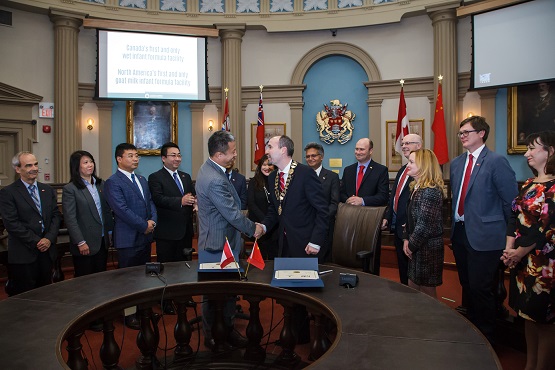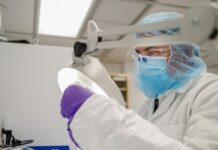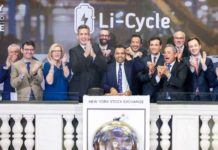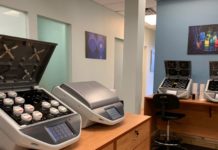Kingstonians have long known that their hometown was a great place to work and do business. And now it looks like the rest of the world is starting to figure that out as well.
The last couple of years have seen two major international food companies picking Kingston as their local base of operations.
In 2015, Frulact, a Portuguese-based manufacturer of fruit products that are used for such foods as yogurt, chose to set up in Kingston, which beat out 12 other Canadian cities. The company ultimately expects to have fifty employees working at the Kingston facility. As well as manufacturing, the $15 million dollar plant will also undertake research and development to create new products for the North American market.
In December 2016, Chinese dairy company Feihe International Inc. chose to locate their 300,000+ square foot advanced manufacturing facility in Kingston. Expected to be operational by 2019, the plant will be North America’s only infant formula plant using goat milk as the basis of its product. The $225 million investment will create between 200-250 direct jobs and more than 1,000 jobs throughout the supply chain. Building the new facility will create approximately 400 construction jobs.
Agri-business is one of the key sectors that Kingston hopes to attract business in. But there is a difference between hoping to attract certain industries and doing so successfully. Kingston mayor Bryan Paterson points to a number of factors that drew both companies to the city. Both companies purchased city owned serviced industrial lands in the Cataraqui Business Park. “In the case of both Frulact and Feihe the land they needed was available immediately, virtually the next morning.”
Infrastructure played a key role as well, says Gerard Hunt, the city’s chief administrative officer. “We think ahead,” he says. The infrastructure was already in place “When these two companies came looking, we could tell them that we already had the water and sewer capacity that, as food producers, they needed. Kingston was shovel ready. ”As well, both companies saw the possibility of drawing on the talent coming out of the city’s post-secondary institutions for research and development. Kingston’s proximity to the Canada-US border was especially important for Frulact, who has already begun exporting into the United States.
Kingston’s team approach and ability to make things happen quickly set it apart from other municipalities vying for the investments, says Donna Gillespie, CEO of the Kingston Economic Development Corporation.
Kingston Economic Development staff worked closely with the City of Kingston and Utilities Kingston as well as local commercial brokers to provide seamless service for both new manufacturers: site plan approvals for Frulact and Feihe were in place in under eight months.
Not merely from the quality of life perspective – it’s easy to get out of town and no one has a long commute – but because it is easy to connect with the right people and networks. The economic development office worked closely with Kingston’s Portuguese and Chinese communities when courting Frulact and Feihe and their efforts at making the firms’ representatives feel welcome played a key role in their decision to invest here.
Word of Kingston’s success at attracting international investment is getting out. Kingston was named top small city in the Americas for its economic development strategy by the Financial Times’ fDI Magazine and sixth for human capital and lifestyle. The magazine says Kingston “is getting it right when it comes to attracting foreign investment.” So it looks like Kingston can expect more in future.
“Success definitely breeds success. Kingston has experienced an all-time high in inquiries over the last two years,” said Gillespie.
Since the Financial Times article in April, Kingston has been ranked by three other major international business publications, which is driving new inquiries. The word is definitely out.
















